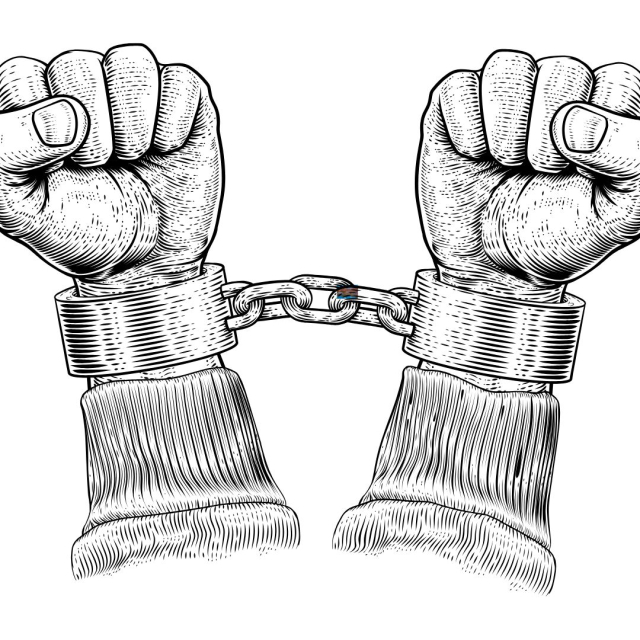Human trafficking is one of the most serious violations of human rights that exist today. Every year, thousands of people fall into the hands of criminal networks that exploit them in various ways, such as forced labor, sexual exploitation, begging and even organ trafficking. July 30 , recognized as the International Day against Trafficking in Human Beings, serves as an urgent call to action, awareness and global collaboration to combat this crime.
A global human rights crisis
Human trafficking is a global phenomenon affecting all regions of the world. According to the United Nations Office on Drugs and Crime (UNODC), millions of victims are trafficked every year, the majority of whom are women and children. This crime is often fuelled by poverty, inequality, armed conflict, lack of education and irregular migration.
The UNODC Global Report on Trafficking in Persons indicates that around 50% of identified victims are trafficked for sexual exploitation, while 38% are trafficked for forced labour. However, these numbers do not reflect the true magnitude of the problem, as many cases go unreported.
Causes and risk factors
Human trafficking is based on a combination of socioeconomic, political and cultural factors. The main causes and conditions that facilitate this crime include:
- Poverty and economic inequality : People in precarious economic situations are more vulnerable to being deceived with promises of employment or better living conditions.
- Conflicts and forced displacement : In contexts of war and humanitarian crises, millions of people are displaced, becoming easy targets for trafficking networks.
- Lack of education and opportunities : Lack of education and employment reduces options for a decent life, which increases the risk of exploitation.
- Weak borders and corruption : In some countries, lack of border regulation and corruption facilitate the transit of victims.
The impact on victims
The consequences of human trafficking are devastating. Victims not only suffer physical and psychological abuse, but also face social stigma and difficulties reintegrating into their communities. In many cases, trafficked people are forced to work in inhumane conditions, deprived of their basic rights and subjected to constant violence.
The psychological trauma experienced by victims includes depression, post-traumatic stress disorder and loss of trust in others. This emotional damage can persist for years, even after being rescued.
The role of international organizations
In response to this crisis, several international organizations have taken steps to combat human trafficking. The United Nations, through the Palermo Convention and its Protocol against Trafficking in Persons, has established a legal framework that seeks to prevent, suppress and punish this crime.
In addition, organizations such as UNODC and the International Organization for Migration (IOM) are working to identify and assist victims, promoting awareness campaigns and training local authorities to respond effectively.
Actions needed to combat human trafficking
Human trafficking is a complex problem that requires comprehensive solutions. Below are some of the most important actions to combat this crime:
- Strengthening legislation : Governments must implement stricter laws that penalize traffickers and protect victims. This includes pursuing criminal networks and providing justice mechanisms for those affected.
- Education and awareness : It is essential that communities understand the risks and tactics used by traffickers. Educational campaigns can empower people to protect themselves and report.
- Victim assistance : Providing shelter, medical care and psychological support is crucial to helping victims rebuild their lives. It is also important to promote their social and economic reintegration.
- International collaboration : The transnational nature of human trafficking requires cooperation between countries. This includes the exchange of information, the harmonization of laws and the implementation of joint operations to dismantle criminal networks.
- Reducing vulnerability : Investing in education, employment and development programs can reduce the factors that make people vulnerable to trafficking.
The role of citizenship
We all have a role to play in the fight against human trafficking. From reporting suspicious activities to spreading information, active participation by society is essential. Some steps we can take include:
- Inform us on the topic and share educational resources with our community.
- Support organizations that work with victims and fight trafficking.
- Pressure governments to prioritize this fight and allocate adequate resources.
Stories of resilience: the human side of the struggle
Despite the suffering caused by this crime, the stories of survival show us the strength and resilience of the victims. Many of them, after being rescued, become human rights defenders, fighting to prevent other people from suffering what they experienced.
One example is Rani, a woman from India who was trafficked for labour exploitation at the age of 15. After being rescued, Rani received psychological support and job training, which enabled her to start a new life. Today, she works for an NGO that helps other women escape trafficking and rebuild their lives.
The International Day against Trafficking in Human Beings is a reminder that this problem remains a reality for millions of people. While progress has been made in the fight against this crime, much remains to be done.
Eradicating human trafficking requires coordinated efforts at global and local levels, as well as a strong commitment from governments, organizations and citizens. By speaking out, educating ourselves and taking action, we can contribute to a world where no person is treated as a commodity.
Combating human trafficking is not only a moral responsibility, but also a duty to human dignity and rights. Let this day be a call to collective action to end this scourge and build a more just and equal society.
